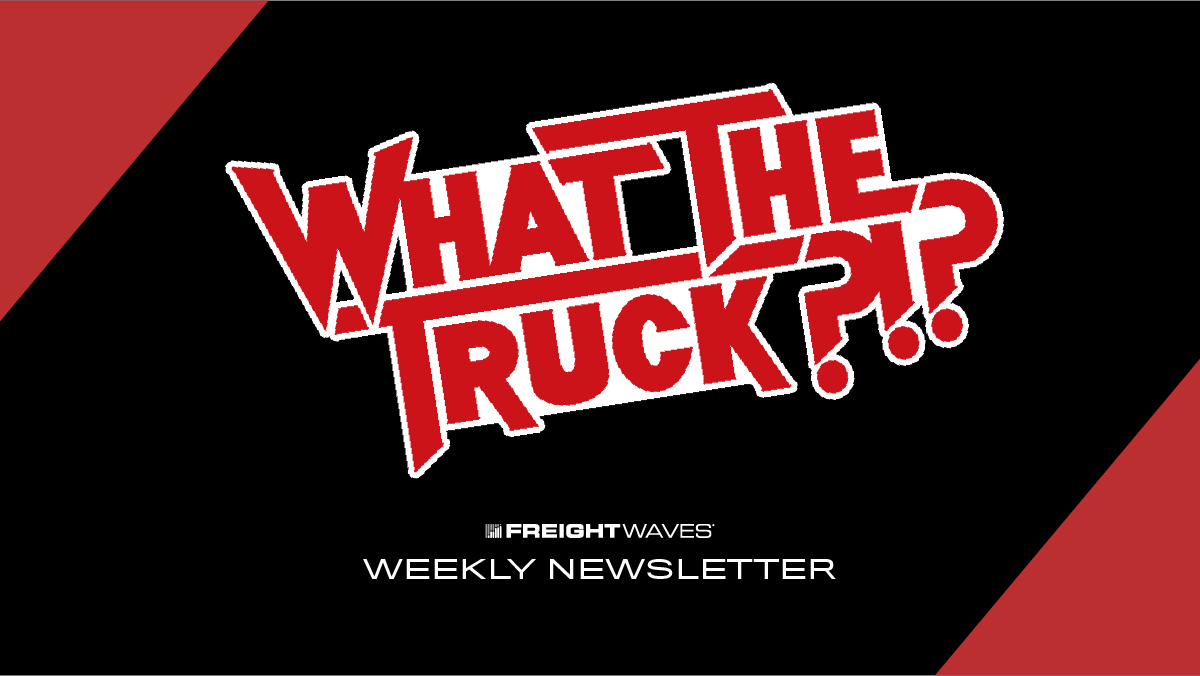Your gateway drug to freight is now a newsletter!
Latest videos
Meet the Hosts
Dooner

Dooner is an award-winning content producer and host who is currently creating new podcasts, TV shows, newsletters and multimedia for FreightWaves.In under a year he helped build FreightCasts, the world’s largest logistics and supply chain podcast network in media. He is a host and producer on WHAT THE TRUCK?!?, pens the WTT?!? newsletter, and directs FreightCasts and Back The Truck Up. Dooner was a featured speaker at TEDx Chattanooga and owns two black labs!
WTT on the GO
Recent Articles

What truckers really think, small fleet electrification and the parking problem – WTT
Now on demand on WHAT THE TRUCK?!? Dooner is joined by Evan Shelley; Hunter Shearer; Alan Adler; King Spud

FreightWaves vs. DAT; Great Freight Recession; Earth Day logistics – WTT
Now on demand on WHAT THE TRUCK?!? Dooner is joined by CJ Marley; Sean Laidacker; Thomas Wasson

Truck stop operator talks fuel fraud, skimming and scams – WTT
Now on demand on WHAT THE TRUCK?!? Dooner is joined by Dominick Tullo; Greg Steele; Ronalkd Greene

There are 10% fewer freight brokerages than there were 1 year ago – WTT
Now on demand on WHAT THE TRUCK?!? Dooner is joined by Kevin Hill; Chris Hayes’; Troy Wittanen; Rob McCuthcheon

Is this EV truck company a victim of a Canadian grant kickback scheme? – WTT
Now on demand on WHAT THE TRUCK?!? Dooner is joined by Edison Motors’ Chace Barber; Black Dog Coffee’s Spencer Squire; Roadz Amit Jain










